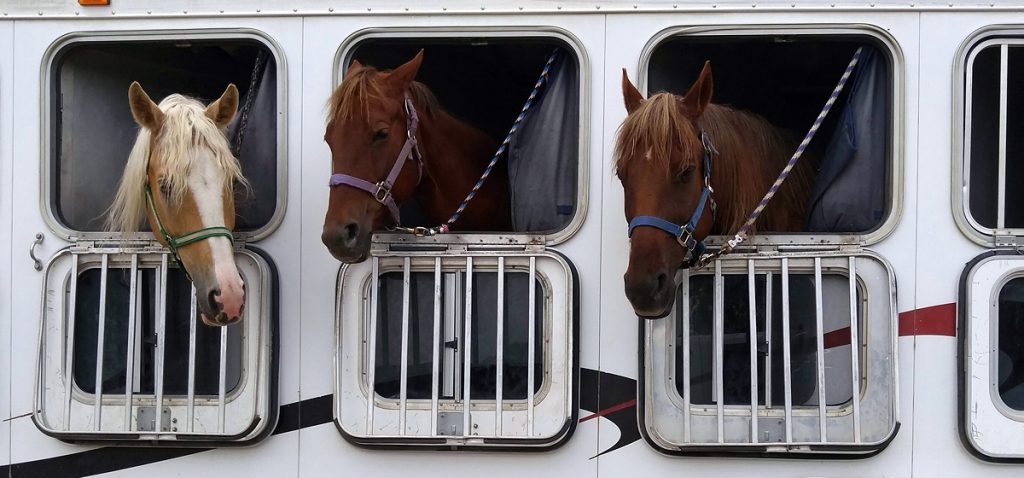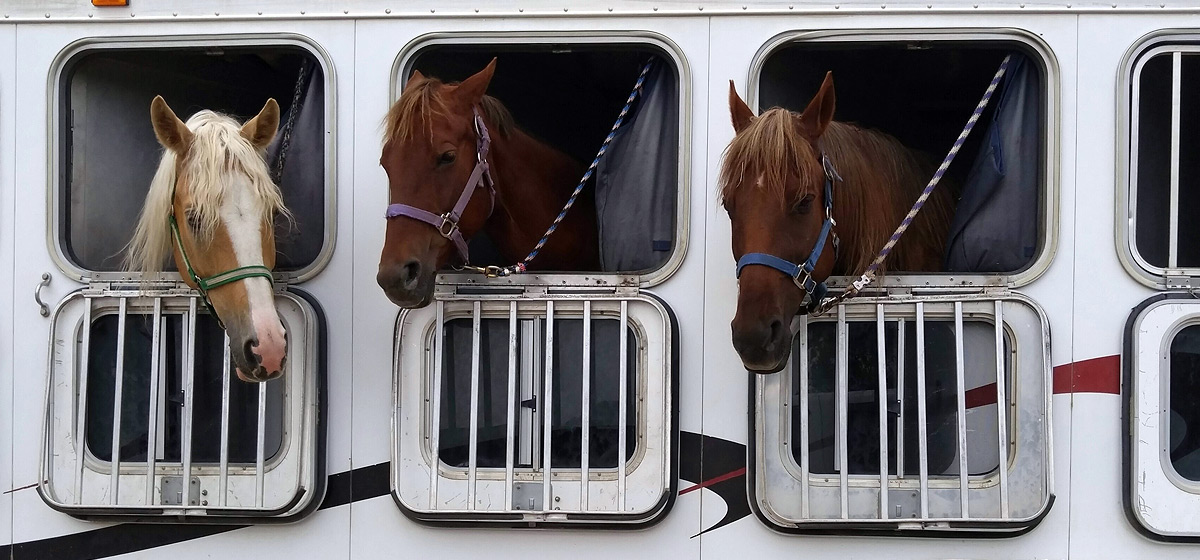Transporting Your Horse to Equestrian Events

Participating in an equestrian event is exciting until you remember that you need to get your horse to the competition. While the idea of transporting a very large animal can be frightening, preparing your horse for their trip can make the journey go much smoother. Read our tips on how to make transporting your horse as stress-free and painless as possible.
Practice Loading and Unloading
It’s likely that your horse will be frightened the first time that they are loaded into a trailer. To prevent a frightened horse from hurting themselves, you should practice loading and unloading your horse when there is no stress or pressure.
A Healthy Horse
Before you go anywhere with your horse, make sure that they are up to journey. You should have a veterinarian assess your horse before leaving as all states require a current negative Coggins test and certificate of veterinary inspection or a health certificate within 30 days of the date of travel.
Want to learn more?
Subscribe to learn how Horse Marketplace can improve your horse buying, selling, and ownership experience.
Leg Wrappings
It may be a good idea to protect your horse’s legs during longer trips. If you decide to do this, you should help the horse get used to the bandages prior to transporting them and watch for irritation and/or rubs during transit.
Check the Vehicle
Before you leave, make sure to check the transportation vehicle to ensure that it is safe for your horse to travel in. Pay special attention to the flooring of the trailer and make sure it is up to the task of safely transporting your horse.
Food and Water
While you shouldn’t feed your horse grain will transporting, access to hay while in the trailer is advised. If you are planning on hanging a hay net, hay bag or feeder, it should be at the horse’s chest height or higher and out of their hoof’s reach. It’s vital to keep your horse hydrated while traveling. Consider sending some of your own water along with the horse or acclimate your horse ahead time to the taste of flavored water, since some horses refuse to drink water that tastes different from what they are used to. You can do this by adding Tang, apple juice, or Gatorade diluted into their drinking water for a few weeks in preparation.
Drive Carefully and Make Regular Stops
You have precious cargo when you are transporting a horse. That’s why you, or whoever is driving, must drive carefully, leaving an adequate amount of space between cars to brake. Always plan to take regular rest stops. It is recommended that you stop every four hours, for at least 20 minutes. You should leave the horse in the trailer so as to avoid the horse getting skittish, but park in a preferably shaded spot with the windows open to increase airflow in the trailer.
When the travel time is longer, you should unload the horse after 12 hours of transport and stable them for at least eight hours so that they can rehydrate and clear the respiratory tract.
Carry Emergency Supplies
Always be prepared for an emergency. You never know what can happen when you are out on the road so you should pack an equine first aid kit and a roadside kit in case anything on the vehicle needs repairing.
Transporting a horse can be stressful but if you remember to follow these tips, you will be prepared to get your horse where it needs to go.

